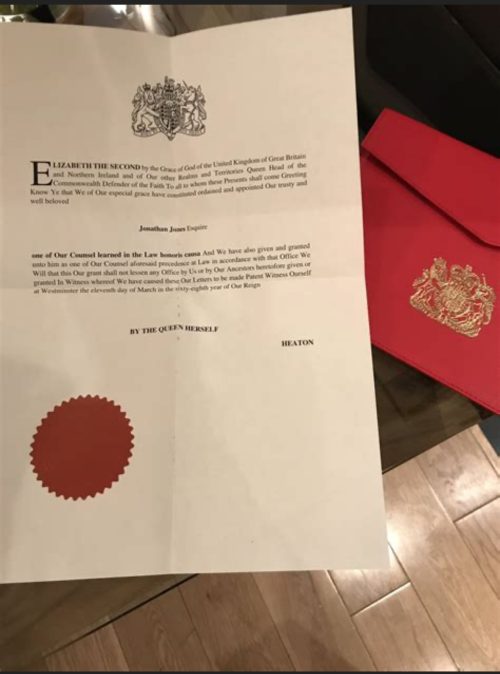The Capillary Wave: Word Index

Capitis Diminutio
capitis deminutio. noun [Merriam Webster Dictionary]
ca· pi· tis de· mi· nu· tio ˈkapətə̇sˌdeməˈn(y)üshēˌō, ˈkä…-ˌdāmə̇ˈnütēˌō
plural capitis deminutiones -ˌn(y)üshēˈō(ˌ)nēz, -ˌnütēˈō(ˌ)nās
Roman law: impairment of legal status or civil capacity before the strict law through loss of freedom, citizenship, or family membership
How words are expressed is very important in the context of law and governance. In Roman Law, which is Civil Law, which are the legal rules that are used to govern all English speaking country’s; the way in which words are stylised has a big significance legally speaking. For example, all corporations have to have their titles registered in ALL CAPITALS. When it comes to citizens Roman Law uses ways in which to stylise names to grade the status of a citizen. Therefore we know at law, the way in which a persons name/title is styled has a direct bearing on that citizens status within that society, or for a particular situation or circumstance that that citizen might find themselves in; like say, court, or prison, or for example when receiving “letters patent” from a Monarch.
You might be surprised to note that it is the same in today’s society – we are after all still very much under Roman Civil Law in the polity known as UNITED KINGDOM.
Using styles to denote different attributes to the same words is nothing new, in The Bible the word LORD is written in differing styles to show the reader whom the word is referring in that particular instance. “LORD” is the Almighty El, “Lord” is Christ Jesus, and “lord” is an earthly lord. Just as “God” is referencing a supreme being, and “god” is referencing an earthly god like a king or judge. So you see, how words are styled is extremely important.
Here is a definition from Black’s Law Dictionary Fourth Edition (available to download free in the members library).
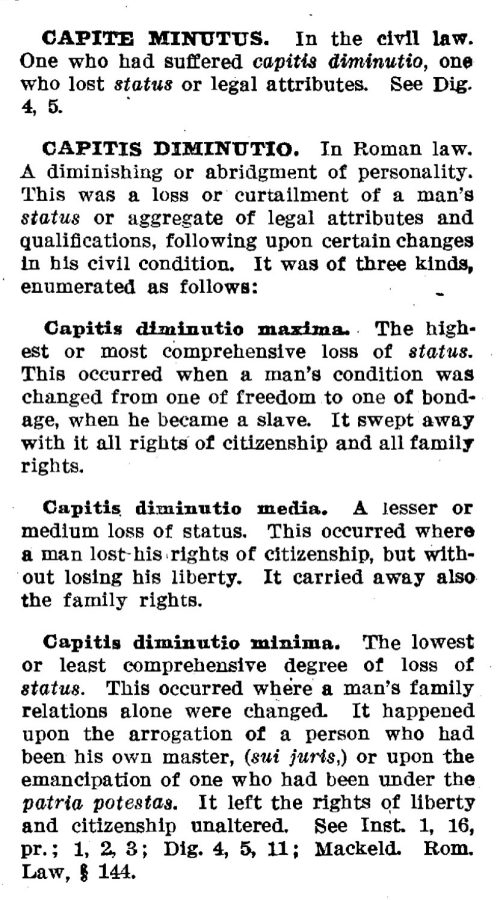
Capitis means “of the head”. Diminutio means “gradual reduction in size”, or importance; diminishing. Logically then, capitis diminutio maxima is the furthest reduction from “the head”, the cap; the crown, in rights and privileges, with minima being the closest to the crown (head). This will become relevant when we consider what “Letters Patent” are, and how QUEEN ELIZABETH II wrote to “Jonathan Jones” former Head of the Government Legal Department – example supplied further down the page.
An example of the stages of CAPITIS DIMINUTIO:
- JOHN DOE – Capitis diminutio maxima
- John DOE – Capitis diminutio media
- John Doe – Capitis diminutio minima – [closest to the crown, the head]
- Source of photograph: Black’s Law First Edition CAPITIS DIMINUTIO.
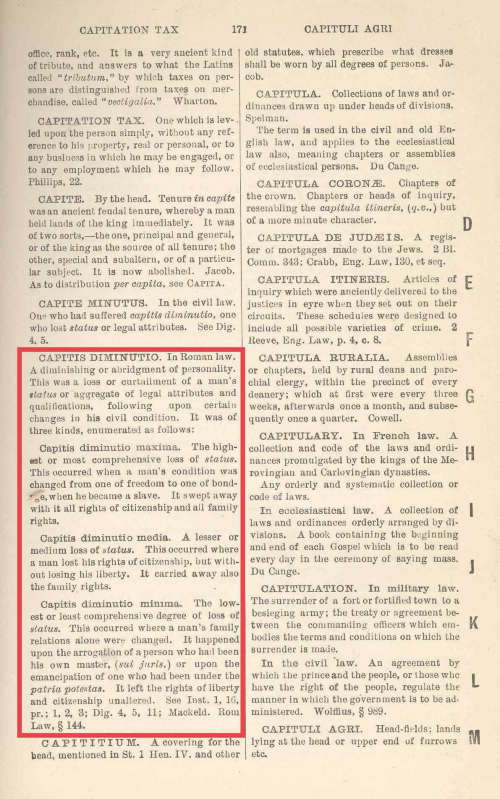
Another example of how CAPITILISING WORDS expresses a legal standing at law, would be for example when registering the title of a corporation. A corporation is a body corporate, otherwise known as a: legal fiction, or legal person. Obviously this body corporate, state entity, would not have the same state given rights as a state citizen would. A body corporate has very few legal rights.
All registered titles of incorporation are in all capital letters, and can only be in all capital letters on the certificate, as this not only denotes a TITLE (as it also does in most styles manuals), but also importantly, the legal status of the legal entity itself. To see for yourself that all capital letters denotes a title, just check the spines of your own book or DVD collections.
As an example some names listed in some crown court cases are either listed in all capital letters, or given a title of Mr / Mrs or similar.
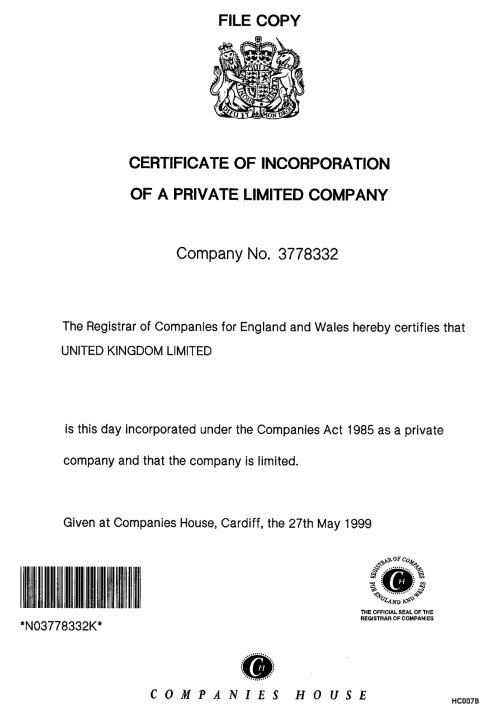
An example of capitis diminutio media would be the CERTIFIED COPY OF AN ENTRY as seen below from the Deed Poll Office for “John Philip SMITH”.
- Source Deed Poll Office.
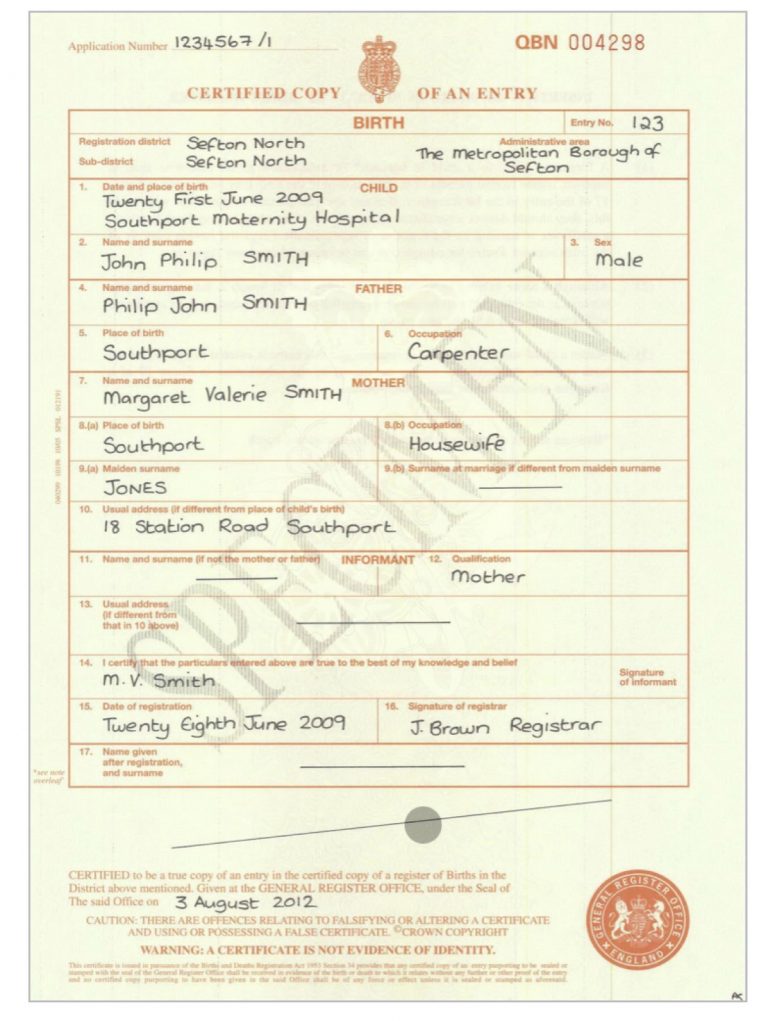
An example of capitis diminutio minima would be “letters patent” which is usually an award by a Monarch for good works and long service.
Here “Jonathan Jones” (former Head of the Government Legal Department) receives his letters patent from Queen Elizabeth II and you will notice his name is styled “Jonathan Jones“, – capitis diminutio minima, meaning “closest to the crown”
